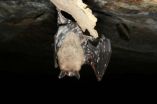Accountable care at Academic Medical Centers: Lessons learned
2011-02-03
(Press-News.org) Academic Medical Centers (AMCs) must adjust and adapt to the new health care reform laws or risk marginalization in the new health care arena, according to a New England Journal of Medicine Perspective article published online February 2.
The authors of the article, Scott A. Berkowitz, M.D., M.B.A., a fellow in cardiology and geriatrics at the Johns Hopkins University School of Medicine, and Edward D. Miller, M.D., dean and CEO of Johns Hopkins Medicine, argue that AMCs can not only remain relevant in the face of sweeping change, but can lead the way by serving as examples of successful transformation while continuing to excel in achieving their mission. For some AMCs, this may take the form of becoming accountable care organizations (ACOs) as established in the Affordable Care Act.
First and foremost, AMCs must have an integrated system of sufficient size and breadth to provide necessary and timely inpatient and outpatient services across the full continuum of care, including primary and specialty care.
Secondly, AMCs need to assess the financial risk associated with pursuing ACO status. The authors note that the Affordable Care Act allows for various ACO payment models based on the level of risk that the health care organization assumes. For example, under partially capitated models, the ACO would be at risk for the cost of some, but not all, of the services covered by Medicare.
Thirdly, AMCs need a robust health information technology platform that captures all patient-encounter information into a standardized system that permits providers to share information, enhances clinical decision making and facilitates rapid analysis of input data.
Lastly, and potentially most challenging, is changing the historic culture of AMCs, which traditionally favor—in terms of advancement—faculty grant support, publications and scholarly reputation over contributions to high-quality care.
The authors cite several examples from the Johns Hopkins Medicine experience that illustrate successful components of an accountable care organization-like model, including health system network expansion, increases in primary care capability, and success in managing capitated care programs.
"Despite the barriers to becoming an accountable care organization," says Berkowitz, "health care reform brings great opportunities for academic medical centers to modernize their approaches to research, education and clinical care."
"In many important respects, academic medical centers are ideally positioned to implement meaningful health care reform," says Miller. "They have the requisite infrastructure, intellectual capital and networks to spearhead efforts to develop, pilot and disseminate new patient-focused measures and care models."
INFORMATION: END
ELSE PRESS RELEASES FROM THIS DATE:
2011-02-03
Neiker-Tecnalia (The Basque Institute for Agricultural Research and Development) has created an air-conditioned greenhouse using alternative energies that enable the reduction of energy costs, improvements in energy efficiency and an increase in crop yields. The novel system has a biomass boiler and thermodynamic solar panels, which reach an optimum temperature for the crop without using fuels derived from petroleum oil or gas.
Neiker-Tecnalia has installed a biomass boiler (using wood and other organic waste as fuel), together with thermodynamic panels, with the goal ...
2011-02-03
Older individuals, who constitute a rapidly growing population in the United States, account for a disproportionate share of health care utilization and cost.
Yet more than half of clinical trials exclude people based on their age or age-related conditions, according to a new study by Robert Wood Johnson Foundation (RWJF) Clinical Scholars® at the University of Michigan.
"These findings are concerning because it means that doctors cannot be confident that clinical trial results apply to their older patients," says Donna Zulman, M.D., the study's lead author and a ...
2011-02-03
Clostridium difficile infection (CDI) is a significant and growing problem in hospitals and other health care facilities, but no new drugs to treat the condition have been developed in several decades. However, a large-scale, phase 3 trial conducted by Canadian and U.S. researchers shows that the new antibiotic Fidaxomicin is superior to existing treatments, demonstrating a 45 percent reduction in recurrences vs. the existing licensed treatment. Their results were published in February, 2011 in The New England Journal of Medicine.
"There wasn't much interest in C. difficile ...
2011-02-03
Elements heavier than iron come into being only in powerful stellar explosions, supernovae. During nuclear reactions all kinds of short-lived atomic nuclei are formed, including more stable combinations – the so-called magic numbers – predicted by theory. Yet here, too, there are exceptions: the islands of inversion. Headed by physicists from the Excellence Cluster Universe at the Technische Universitaet Muenchen (TUM), an international team of scientists has now taken a closer look at the island that was first discovered. They have now published their results in Physical ...
2011-02-03
For almost two decades, cardiologists have searched for ways to see dangerous blood clots before they cause heart attacks.
Now, researchers at Washington University School of Medicine in St. Louis report that they have designed nanoparticles that find clots and make them visible to a new kind of X-ray technology.
According to Gregory Lanza, MD, PhD, a Washington University cardiologist at Barnes-Jewish Hospital, these nanoparticles will take the guesswork out of deciding whether a person coming to the hospital with chest pain is actually having a heart attack.
"Every ...
2011-02-03
GAINESVILLE, Fla. — A NASA team including three University of Florida astronomers has found six new planets in a distant solar system that in some ways resembles our own.
The NASA team, including UF associate professor Eric Ford, postdoctoral associate Althea Moorhead and graduate student Robert Morehead, will announce its findings in Thursday's issue of the journal Nature.
"This is the new prototype for a system of rocky planets beyond our own," Ford said. "It changes our understanding of the frequency of solar systems like our own in deep space."
The planets orbit ...
2011-02-03
– Symptomatic lumbar disc disease, a condition caused by degeneration or herniation of the discs of the lower spine, may be inherited, according to a new study published in the Journal of Bone and Joint Surgery (JBJS).
"Previous studies, including studies of twin siblings and subsequent genetic marker studies, have suggested a genetic predisposition for the development of symptomatic lumbar disc disease but have been limited by a small number of patients," noted study author Alpesh A. Patel, MD FACS, assistant professor of orthopaedic surgery at the University of Utah ...
2011-02-03
PITTSBURGH—Writing can be a solitary, intellectual pursuit, but researchers at Carnegie Mellon University have shown that the task of writing an informational article also can be accomplished by dozens of people working independently online.
Each person in the CMU experiments completed just a sliver of the work of preparing an article, such as preparing an outline, gathering facts or assembling facts into simple prose. The "authors" never even spoke with each other. But the research team led by Aniket Kittur, assistant professor in CMU's Human-Computer Interaction Institute ...
2011-02-03
SAN ANTONIO (Feb. 2, 2011) — Obesity among women of childbearing age is increasing worldwide. Because babies of obese mothers are themselves predisposed to obesity, society can reasonably expect the epidemic of obese and overweight people to continue through future generations.
In the midst of this trend, UT Health Science Center San Antonio obstetrics researchers are studying the question: If mothers lose body fat before pregnancy, does it improve the lifelong health of their children? This could be one way to break the transgenerational cycle. A collaborative study ...
2011-02-03
A team of wildlife experts led by UC Davis called today for a national fight against a new fungus that has killed more than 1 million bats in the eastern United States and is spreading fast throughout North America.
"If we lose bats, we lose keystone species in some communities, predators that consume enormous numbers of insects, and beautiful wildlife species that are important parts of North America's biodiversity," said Janet Foley, a UC Davis professor of veterinary medicine at the Center for Vectorborne Diseases.
Foley and her co-authors' call to action appears today ...
LAST 30 PRESS RELEASES:
[Press-News.org] Accountable care at Academic Medical Centers: Lessons learned


